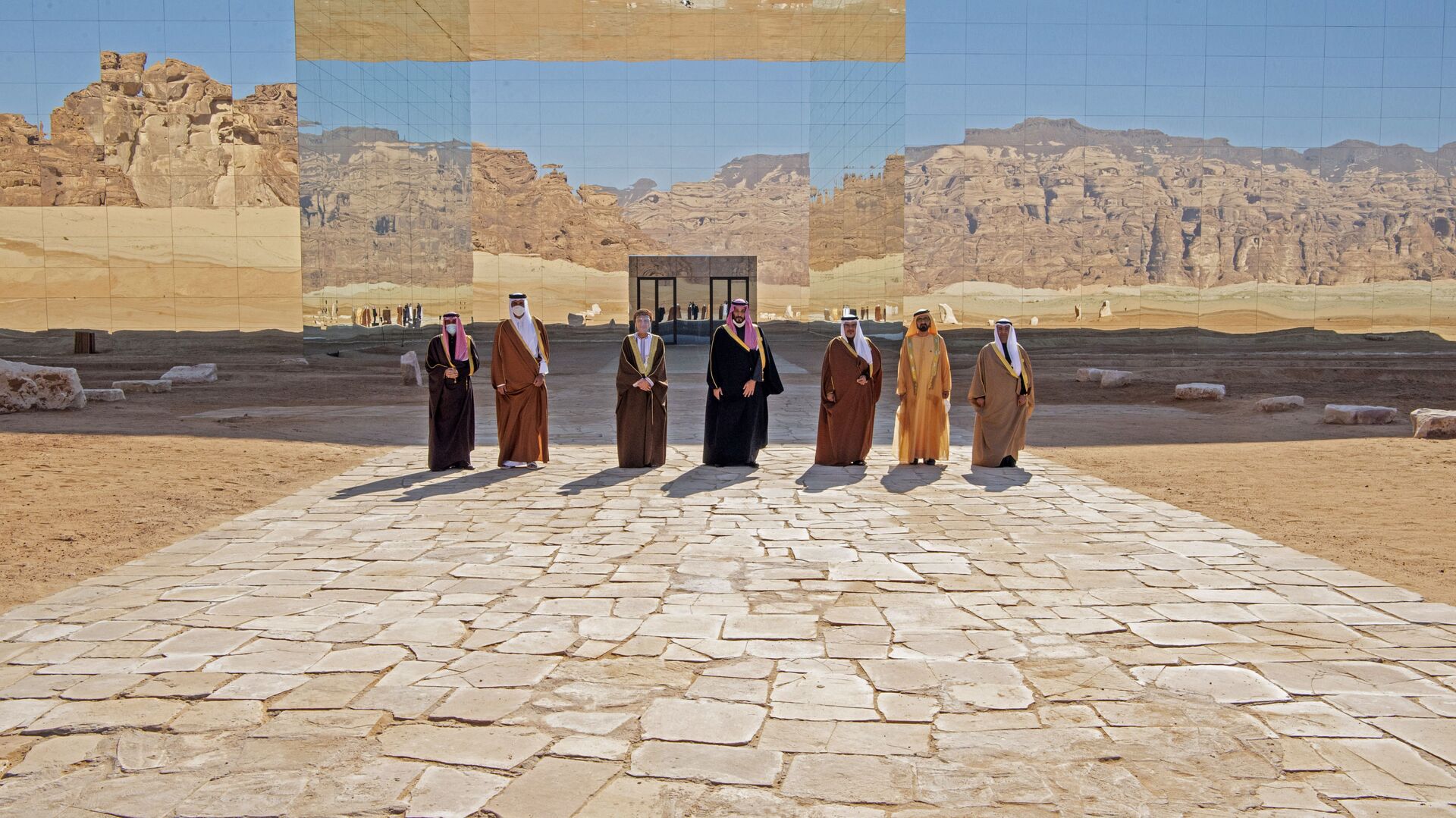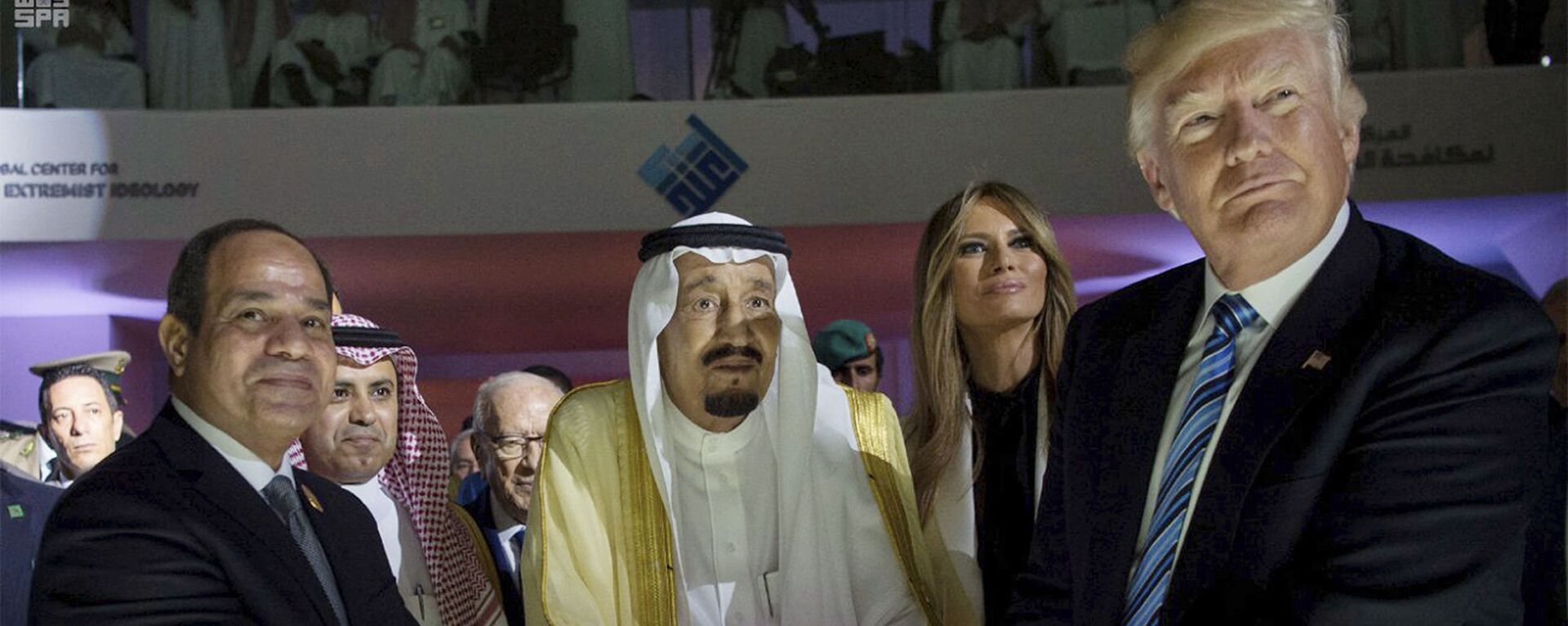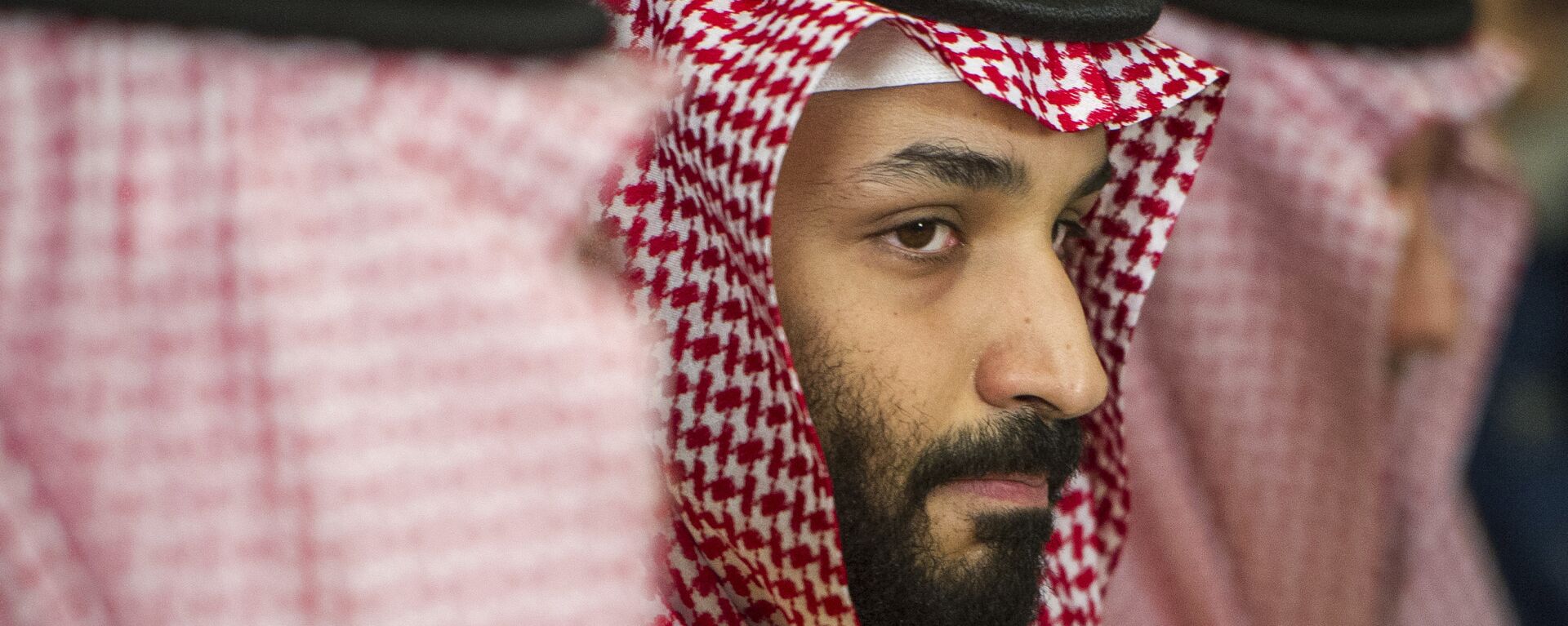Neither Common Goal, Nor Common Enemy: Is Arab NATO Really Necessary in the Middle East?
06:00 GMT 26.06.2022 (Updated: 17:26 GMT 15.01.2023)

© BANDAR AL-JALOUD
Subscribe
Jordan’s King Abdullah II said in a 24 June interview with CNBS that he backs the formation of a NATO-style military alliance in the Middle East. According to the king, the growing importance of military collaboration stems from "insecurities and instability in the region" which "affect regional projects."
"We're not in front of a new idea," says Dr. Hesham Alghannam, Saudi political scientist and a senior research fellow at the Gulf Research Center, Cambridge, commenting on the Jordanian king's "Arab NATO" remarks. "When Trump came to Riyadh in May 2017 for his first foreign visit as the president of the United States, the main thing that we got to remember from the visit was this re-exporting and reproducing the idea of Arab NATO, the Middle East Strategic Alliance."
In 2017, then-US President Donald Trump laid out his vision with regard to a new regional security architecture dubbed "Arab NATO." Saudi Arabia would be at the helm, with the aim of pushing back against Iran.
The White House wanted to see deeper cooperation between the countries on missile defense, military training, counter-terrorism as well as strengthening regional economic and diplomatic ties, sources told Reuters at that time. Six Gulf states, namely Qatar, Saudi Arabia, the UAE, Bahrain, Kuwait, and Oman, plus Egypt and Jordan were supposed to make up the so-called Middle East Strategic Alliance, or MESA.
Alghannam believes that Riyadh was serious in engaging and also leading such an alliance, especially because the Saudis anticipated Washington's withdrawal from the Middle Eastern region.
"The Gulf states and specifically the [Saudi] kingdom approved that," says Alghannam. "But the problem, I think, unfolded later on, when these states and especially the Saudis, had to hold the whole burden of creating this alliance. They faced difficulties. And the United States was not serious in its actions in implementing the alliance. Also, there was this assumption that the Saudis mainly would take care of the financial cost of the whole alliance, and things do not work this way. So it didn't fly at that time, it failed."
Obstacles in the Path of Forming MESA
There are still many obstacles in the path of creating an Arab NATO, according to Dr. Birol Baskan, a non-resident scholar at the Middle East Institute.
One of them is that there is "no overwhelming Arab military power," which could make the whole responsibility for forming and orchestrating the new alliance difficult, according to him.
"NATO's a success because of the overwhelming power of the United States," says the scholar. "Without the United States NATO is not a success case. Even if they can create a Middle East version, I don't know which country is going to share the burden. I don't think that it's a feasible idea."
According to Baskan, the UAE and Saudi Arabia have excellent air forces, but their land forces are not that impressive. For its part, Egypt has a formidable land force but it raises questions whether it could lead the bloc. At the same time, he presumes that if such a proposal were put on the table, the two major beneficiaries would be Saudi Arabia and Egypt. "Again, I mean, this is a hypothetical situation where this force is established - it's not going to be established," he adds.
The inability of the states and the militaries of the hypothetical Arab NATO "to work together effectively under unified command and control structures" could further hinder the formation of the common military bloc, according to Mehran Kamrava, Professor of Government at Georgetown University Qatar.
Meanwhile, Jordan's willingness to form such an alliance is understandable: "As a small, resource poor country, Jordan would welcome these forms of international alliances that are likely to bring it material, diplomatic, and security benefits it would not otherwise have," Kamrava says.
"I think NATO in the Middle East wouldn't be possible now without sharing the responsibilities equally," assumes Alghannam. "You cannot just throw everything on Riyadh's shoulders or kick the ball in Riyadh court and expect Riyadh to do everything. The United States, as the major world power in the region, should really contribute to that by offering the technical capabilities and the learning process also and the focus should be on the political/security angle, not on any other angle."
The political scientist notes that Middle Eastern players have already been maintaining a number of regional alliances, including the Arab League, which have joint projects, financial endeavors, planning, etc.
"But what's missing is the political/security angle, and the focus should be on this if we want to achieve anything," Alghannam underscores.
Both observers agree that yet another problem is that there is no major military conflict in the region which could serve as a unifying factor for the nations. While decades ago Arab nations came together to counter Israel, their relations with the Jewish state have undergone a dramatic transformation since then.
"The primary actors, Saudi Arabia, the UAE and Egypt are on good terms with Israel, Jordan included," says Baskan. "Israel, I guess, might even encourage them to come together, might even participate itself."
"Again, there is Iran as a threat," the scholar continued. "But is this a good reason to bring all these countries together? I don't think so."
While NATO was formed as a bulwark against Communism and the Soviet Union, the aforementioned Arab states "do not have such a common enemy, let's say, or a common target or a common goal," echoes Alghannam.
The question then arises whether such a NATO-style alliance is really necessary in the region, according to Baskan.
"There is already an alliance extending from Abu Dhabi, Riyadh, Cairo to Tel Aviv," he says. "And this alliance is going to get stronger and stronger every day. Whether they can turn this into a military alliance, time will tell."




